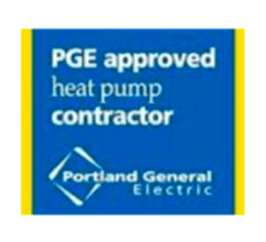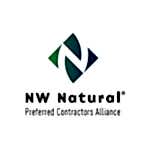We live in a digitized world. With that, we are seeing a huge push to automate everything—including our homes. Are smart homes the way of the future? Given the many benefits and conveniences provided by home automation, the signs are pointing to yes.
In this edition of the Jacobs Heating and Air Conditioning blog, we’ll explore the benefits of home automation systems along with the types of home automation products our in-house technicians recommend.
What is Home Automation?
Home automation, or smart home technology, connects your lighting, heating and air conditioning, wi-fi enabled appliances, and home safety and security systems to a central hub. This centralization allows you to control and monitor all of these household features remotely, either through your mobile phone, tablet, or computer.
Still wondering why this is helpful? Let’s take a look at 5 of the surprising benefits of smart home automation:
Benefits of Home Automation
1. Convenience
Smart home devices allow you to control various aspects of your home with ease. You can remotely manage your lights, thermostats, appliances, and more through smartphone apps or voice commands, eliminating the need to manually adjust settings.
2. Energy Efficiency
Smart thermostats and lighting systems can optimize energy usage by adjusting settings based on occupancy or time of day. This can lead to reduced energy consumption and lower utility bills.
3. Security
Smart security systems enable remote monitoring of your home through cameras, doorbell cameras, and motion sensors. You can receive real-time alerts and take action if any suspicious activity is detected.
4. Safety
Smart smoke detectors, carbon monoxide detectors, and water leak sensors can provide early warnings in case of emergencies, helping to prevent potential disasters.
5. Remote Monitoring
Whether you’re at work, on vacation, or anywhere else, you can monitor and control your home remotely. This includes adjusting settings, checking security feeds, and receiving notifications.
6. Customization
Many smart home systems allow for customization to suit your preferences. You can create schedules, presets, and scenes that align with your daily routine and activities.
7. Accessibility
Smart home devices can greatly improve accessibility for individuals with disabilities or limited mobility. Voice commands and remote control options make it easier to interact with the environment.
8. Entertainment
Smart entertainment systems can integrate your audio, video, and streaming services, offering seamless control and access to your favorite media.
9. Health and Wellbeing
Some smart devices, like air purifiers and smart beds, are designed to enhance health and comfort. They can monitor air quality, adjust sleeping positions, and provide other features that contribute to better wellbeing.
10. Home Value
Adding smart home technology can potentially increase the resale value of your home, as many buyers are increasingly interested in properties equipped with modern automation features.
11. Time Savings
Automation can save time by streamlining routine tasks. For example, a smart vacuum can clean your floors while you focus on other activities.
12. Maintenance Alerts
Smart devices can provide alerts and notifications when maintenance or replacements are needed, helping you stay on top of necessary tasks.
13. Appliance Control
You can remotely control and monitor appliances like ovens, refrigerators, and washing machines, ensuring they are functioning properly and efficiently.
14. Water and Resource Management
Smart irrigation systems can optimize watering schedules based on weather conditions, leading to water savings in landscaping.
15. Reduced Clutter
With centralized control through a smartphone or hub, you can reduce the need for multiple remote controls and switches, decluttering your living space.
Drawbacks
It’s important to note that while smart home automation offers numerous benefits, there can also be potential drawbacks, such as initial setup costs, privacy and security concerns, and the need for ongoing updates and compatibility checks as technology evolves.
Home Automation FAQs
Is smart home automation secure?
Address concerns about the security of smart home devices and networks. Explain what measures can be taken to ensure the privacy and protection of personal data and devices from potential threats.
Do I need technical expertise to set up smart home devices?
Clarify whether setting up smart home devices requires technical knowledge and skills. Provide insights into user-friendly setups and potential challenges beginners might face.
Are smart home devices interoperable?
Explain the concept of device interoperability and compatibility. Discuss how readers can ensure that different brands and types of smart devices can communicate and work together effectively.
Can smart home automation save energy and money?
Discuss the potential energy-saving benefits of smart home automation, including examples of how devices like smart thermostats and energy-efficient lighting can lead to cost reductions.
What are the potential downsides of smart home automation?
Provide a balanced perspective by addressing potential drawbacks, such as initial costs, reliance on technology, connectivity issues, and privacy concerns, to help readers make informed decisions.
Home Automation with Jacobs
Our technicians are trained to install the latest home automation system from Carrier and Ecobee so that your home can be accessed and controlled remotely. The mobile app allows you to give guests entry to your home, set up timers and climate control zones, and monitor your home while you’re away. The hub isn’t invasive either; it can even be stored in a closet. The system is easy to use and has been a success among our customer base.
Contact Us About Your Smart Home
If you’d like to learn more about how to automate your HVAC system, we’d love to talk to you. Learn more about home automation and reach out to us here at Jacobs for questions on how to get started. With over 60 years of experience in HVAC services, our team is happy to help you with any of your HVAC needs.










